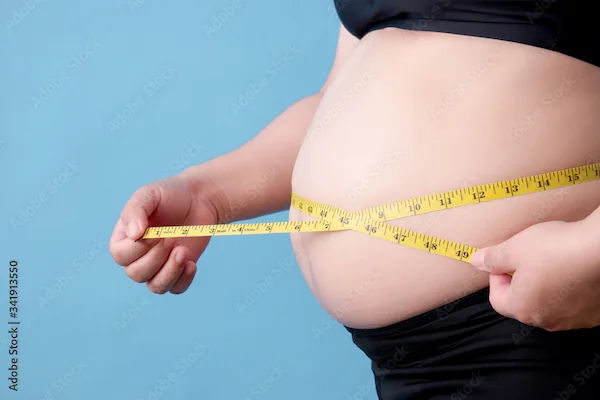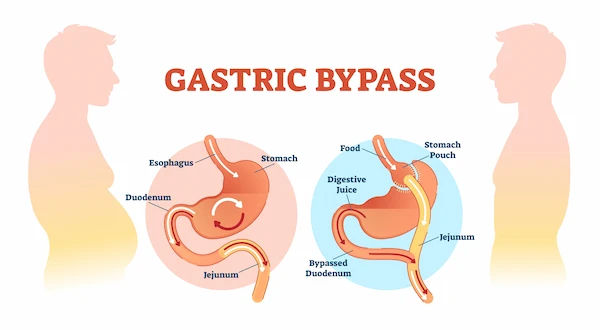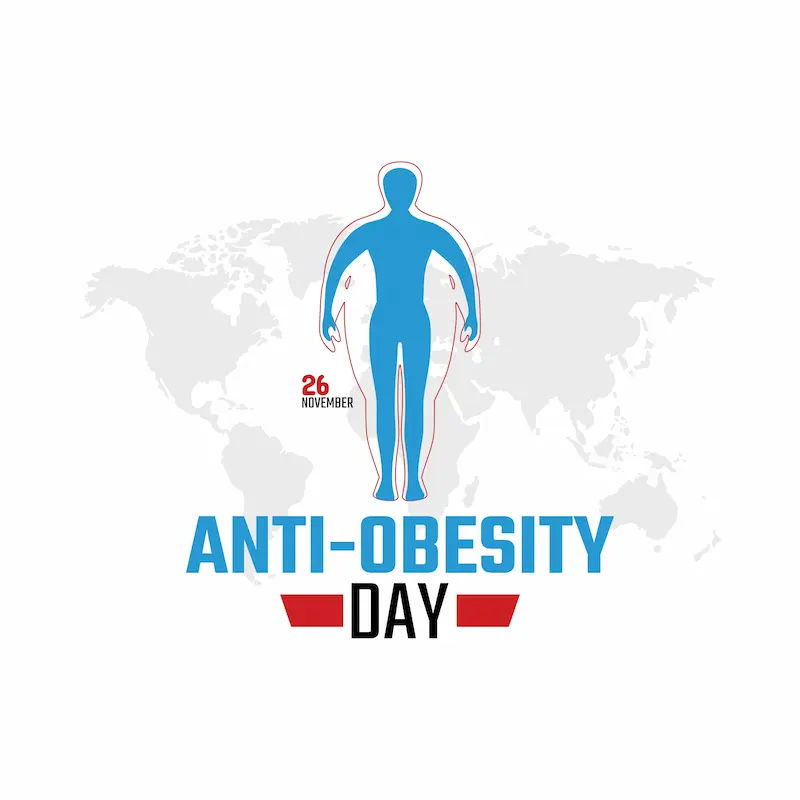Your Complete Guide to Liposuction: Benefits, Risks, and Recovery
Know about liposuction, what it is, how to qualify, types of liposuction, benefits and risks, step-by-step journey and more.

Written by Dr. M L Ezhilarasan
Reviewed by Dr. Shaik Abdul Kalam MD (Physician)
Last updated on 13th Jan, 2026
.webp?tr=q-80,f-webp,w-350,dpr-2,c-at_max 700w)
Struggling with stubborn pockets of fat that just won’t budge, no matter how many hours you spend in the gym or how strictly you diet? You're not alone. For millions, these problem areas—like the abdomen, thighs, or love handles can be a source of frustration and impact self-esteem. This is where liposuction, one of the world's most popular cosmetic procedures, comes into the picture. But is it the right choice for you? This comprehensive guide will move beyond the myths to explore the real reasons why getting liposuction, how it works, and what you can genuinely expect. We’ll delve into the benefits, the risks, the recovery process, and the crucial facts you need to make an empowered decision about body contouring.
What is Liposuction, Really? Defining Body Contouring
Often misunderstood as a weight-loss tool, liposuction is more accurately described as a body contouring or sculpting procedure. Its primary goal is to selectively remove localised fat deposits to refine and reshape specific areas of the body.
Liposuction vs. Weight Loss: Understanding the Critical Difference
This is the most vital distinction. Weight loss through diet and exercise reduces fat cell size throughout the body. Liposuction, however, surgically removes fat cells from targeted areas. Since adults have a fixed number of fat cells, removing them can provide permanent contour improvement in that specific zone. However, it is not an obesity treatment. Significant weight gain after the procedure can cause remaining fat cells to enlarge, potentially altering your results. The ideal liposuction candidate is already at or near their ideal weight but needs help with specific, diet-resistant fat.
Consult a General Surgeon for Personalised Advice
The Science Behind the Procedure: How Liposuction Works
The procedure involves a board-certified plastic surgeon making small, inconspicuous incisions in the target area. A thin tube called a cannula is inserted and connected to a vacuum device. The surgeon strategically moves the cannula to break up and suction out fat deposits, sculpting a new, improved contour. The artistry lies in the surgeon's skill to remove fat evenly and create natural-looking results.
Top Reasons Why People Choose Liposuction
The decision to undergo liposuction is deeply personal, but the motivations often fall into a few key categories.
Targeting Stubborn Fat Resistant to Diet and Exercise
Genetics play a huge role in where our bodies store fat. Some areas, like the lower abdomen in men or the outer thighs in women ("saddlebags"), are often resistant to even the most rigorous health regimens. Liposuction effectively addresses this genetic predisposition by physically removing these fat cells, making it a powerful solution for stubborn fat that impacts your proportions.
Enhancing Body Shape and Silhouette
The goal is rarely to become smaller overall, but to become more proportionate. Liposuction can create dramatic improvements in silhouette by:
- Defining the waistline.
- Slimming the thighs and hips.
- Reducing a double chin.
- Contouring the back and flanks ("love handles").
- Creating a more masculine chest contour in men with gynecomastia.
Boosting Self-Confidence and Mental Well-being
This is often the most significant outcome. When your external appearance aligns with your internal self-image, it can be profoundly empowering. Removing a source of lifelong insecurity can boost self-confidence, encourage a more active lifestyle, and improve overall quality of life. It’s about feeling as good as you look.
Are You a Good Candidate for Liposuction?
Not everyone is an ideal candidate for this procedure. An honest self-assessment and medical evaluation are crucial.
Ideal Candidate Profile
It includes:
- Adults are within 30% of their ideal weight.
- Individuals with good skin elasticity (so skin can snap back smoothly after fat removal).
- Non-smokers or those willing to stop weeks before and after surgery.
- People with realistic expectations about what the surgery can achieve.
- Those in good general health without conditions that impair healing.
Important Health Considerations and Contraindications
Liposuction is not recommended for those with severe heart problems, blood-clotting disorders, or a weakened immune system. It's also less effective for individuals with very loose, sagging skin, as the procedure removes fat but does not tighten skin significantly. If your condition involves complex health factors, it is wise to consult a doctor online with Apollo24|7 for an initial discussion before seeking a surgical consultation.
Exploring the Different Types of Liposuction Techniques
Technology has evolved, offering several methods. Your surgeon will recommend the best type of liposuction for your needs.
Tumescent Liposuction (The Gold Standard)
This is the most common technique. A large volume of a sterile solution (a mixture of saline, local anaesthetic, and adrenaline) is injected into the target area. This fluid swells the fat, making it easier to remove, reduces blood loss, and provides pain relief during and after surgery.
Laser-Assisted Liposuction (LAL), like SmartLipo
This technique uses laser energy to liquefy fat cells before they are suctioned out. The thermal energy from the laser may also stimulate collagen production, leading to modest skin tightening, which can be a benefit in areas with mild laxity.
Ultrasound-Assisted Liposuction (UAL), like VASER
UAL uses ultrasonic energy to break apart the fat cells' walls, emulsifying the fat for easier removal. It is particularly effective in fibrous areas like the back or male chest and is often used for secondary procedures or more precise sculpting.
What to Expect: The Liposuction Journey Step-by-Step
The steps include:
The Initial Consultation: Setting Realistic Expectations
This is the most important step. You’ll discuss your goals, medical history, and the surgeon will evaluate your anatomy. They will explain the likely outcomes, potential risks, and cost of liposuction. Use this time to ask questions and view before-and-after photos of their previous patients.
The Day of the Procedure
Liposuction is typically an outpatient procedure performed under local anaesthesia with sedation or general anaesthesia, depending on the extent. The surgery itself can take from 1 to 4 hours. You will be taken to a recovery room to be monitored before being released to go home with a responsible adult.
The Recovery Process: Immediate Aftercare and Beyond
You will be fitted with a tight compression garment to wear for several weeks. This is essential to reduce swelling, help the skin contract, and shape the new contour. Swelling, bruising, and soreness are normal and can be managed with medication. Most people return to light work within a few days to a week, but strenuous exercise should be avoided for about a month. Final results become gradually apparent as the swelling subsides over several months.
Weighing the Pros and Cons: Benefits and Risks of Liposuction
The Significant Benefits: From Contouring to Confidence
- Permanent Fat Removal: Eliminates specific fat cells for lasting results.
- Improved Body Contour: Creates a more sculpted, proportionate figure.
- Boost in Self-Esteem: Can significantly improve body image and confidence.
- Minimally Invasive: Compared to other surgeries, it uses small incisions with minimal scarring.
Potential Risks and Complications
As with any surgery, risks exist. These include infection, bleeding, fluid accumulation, and adverse reactions to anaesthesia. Specific to liposuction are contour irregularities (lumps or dimples), numbness, and skin discolouration. These underscore the importance of choosing a highly qualified, experienced surgeon.
Life After Liposuction: Maintaining Your Results Long-Term
The fat cells removed are gone for good. However, the remaining fat cells in your body can still grow larger if you gain weight. To maintain your liposuction results, a commitment to a stable weight through a balanced diet and regular exercise is non-negotiable. This procedure is a powerful jumpstart, but it is not a substitute for a healthy lifestyle. It’s a partnership between surgical artistry and your daily habits.
Conclusion
Deciding to undergo liposuction is a significant choice that should be made with careful research and realistic expectations. It is not a magic wand for obesity but an incredibly effective tool for body sculpting, designed to tackle those frustrating, genetically-determined fat deposits that diet and exercise can't reach. The benefits a more proportionate figure, clothing that fits better, and a major confidence boost can be life-changing for the right candidate. However, these rewards come with the inherent risks of surgery and a responsibility to maintain results through healthy living. Your journey begins with knowledge and culminates in choosing a certified, reputable plastic surgeon who listens to your goals and prioritises your safety. If you are considering this path, take your time, ask every question you have, and ensure you are doing it for yourself.
Consult a General Surgeon for Personalised Advice
Consult a General Surgeon for Personalised Advice

Dr. Balachandar Kariappa Reddy
General Surgeon
16 Years • MBBS, DNB (Gen. Surg.), FMAS.,FAIS
Chennai
Apollo Hospitals Greams Road, Chennai
(75+ Patients)

Dr Venu Kumar K N
Vascular Surgeon
10 Years • MBBS, MS (Surg), DNB (Surg), M.Ch (Vas Surg), DrNB (Vas Surg)
Bengaluru
Apollo Clinic, JP nagar, Bengaluru

Dr Anubhav Chittari
General Surgeon
3 Years • MBBS, M.S GENERAL SURGERY
Bengaluru
PRESTIGE SHANTHINIKETAN - SOCIETY CLINIC, Bengaluru

Dr. Kilambi Srinivas
General and Laparoscopic Surgeon
30 Years • MBBS, M.S(Gen. Surg.)
Secunderabad
Apollo Hospitals Secunderabad, Secunderabad

Dr. Rekha Jaiswal
General Surgeon
22 Years • MBBS, MS (Gen. Surg.), M.MAS (Master in Minimal Access Surgery), FIAGES, FMAS, FALS (Bariatric), DMAS & Robotic ( da Vinci), USA Trained- Bariatric & Robotic Surgery
Delhi
Apollo Hospitals Indraprastha, Delhi
(200+ Patients)
Consult a General Surgeon for Personalised Advice

Dr. Balachandar Kariappa Reddy
General Surgeon
16 Years • MBBS, DNB (Gen. Surg.), FMAS.,FAIS
Chennai
Apollo Hospitals Greams Road, Chennai
(75+ Patients)

Dr Venu Kumar K N
Vascular Surgeon
10 Years • MBBS, MS (Surg), DNB (Surg), M.Ch (Vas Surg), DrNB (Vas Surg)
Bengaluru
Apollo Clinic, JP nagar, Bengaluru

Dr Anubhav Chittari
General Surgeon
3 Years • MBBS, M.S GENERAL SURGERY
Bengaluru
PRESTIGE SHANTHINIKETAN - SOCIETY CLINIC, Bengaluru

Dr. Kilambi Srinivas
General and Laparoscopic Surgeon
30 Years • MBBS, M.S(Gen. Surg.)
Secunderabad
Apollo Hospitals Secunderabad, Secunderabad

Dr. Rekha Jaiswal
General Surgeon
22 Years • MBBS, MS (Gen. Surg.), M.MAS (Master in Minimal Access Surgery), FIAGES, FMAS, FALS (Bariatric), DMAS & Robotic ( da Vinci), USA Trained- Bariatric & Robotic Surgery
Delhi
Apollo Hospitals Indraprastha, Delhi
(200+ Patients)
More articles from Obesity
Frequently Asked Questions
How much does liposuction cost?
The cost of liposuction varies widely based on the surgeon's experience, geographic location, the number of areas treated, and the technique used. It is typically priced per area. It's important to factor in all costs, including anaesthesia, facility fees, and post-surgery garments.
Will the fat come back after liposuction?
The fat cells removed during surgery are gone permanently. However, if you gain a significant amount of weight after the procedure, the remaining fat cells in your body (including in other areas) can expand. This is why maintaining a stable weight is crucial for maintaining liposuction results.
Is liposuction painful?
The procedure itself is performed under anaesthesia, so you won't feel pain. During the recovery time, it's common to experience soreness, swelling, and bruising similar to a tough workout. Pain is typically manageable with prescribed or over-the-counter pain medication.
Are liposuction scars noticeable?
Surgeons make incisions in discreet locations, and they are very small (typically less than a centimeter). These scars usually fade over time to become faint, thin lines that are barely noticeable.
What is the difference between liposuction and a tummy tuck?
This is a common confusion. Liposuction only removes fat. A tummy tuck (abdominoplasty) is a more extensive procedure that removes excess skin and fat and tightens the abdominal muscles. If you have loose skin or muscle separation, liposuction alone may not be sufficient.




_0.webp)